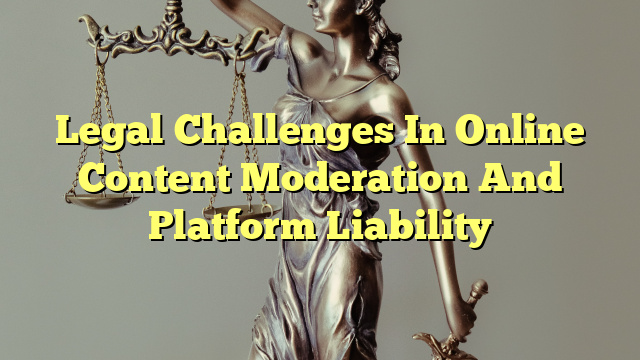Table of Contents
Challenges in Content Moderation
Online content moderation is becoming an increasingly important issue for companies, politicians, and the public at large. As the internet has grown and become a major source of information for both personal and business uses, the need to regulate and police the content posted online has grown as well. This has created a number of legal and ethical challenges for companies that are responsible for moderating online content.
One of the primary challenges of content moderation is defining what constitutes “offensive” or “inappropriate” content. Social media platforms have been criticized for their lack of consistent standards when it comes to content moderation, with some users claiming that certain kinds of speech are being unfairly censored while other, more offensive content remains unpunished. This has led to discussions about what the legal standards for content moderation should be, with some arguing that platforms should have the right to enforce their own rules about what is and isn’t acceptable.
Another challenge of content moderation is the difficulty of enforcement. It is often difficult for platforms to identify and remove offensive or inappropriate content as it is posted. This can lead to a proliferation of offensive content that can be difficult to track down and remove. Furthermore, platforms may be reluctant to remove content that could be seen as controversial or offensive, as they do not want to be accused of censorship or of violating the rights of their users. This can lead to a situation in which offensive content remains online, even though it may be in violation of the platform’s terms of service.
There is also the challenge of finding a balance between protecting free speech and protecting users from potentially offensive or harmful content. Platforms must find a way to allow users to express themselves without fear of censorship, while also protecting other users from potentially damaging or offensive content. This can be difficult to achieve, as it is easy for platforms to be accused of censorship if they are too strict in their enforcement of their policies.
Section 230 Liability Protections
Section 230 of the Communications Decency Act of 1996 is a federal law that provides online platforms with immunity from civil liability for content that has been posted by third-party users. Under Section 230, online platforms are not liable for the content posted by their users, as it is the user that is legally responsible for the content they post.
Section 230 protections have been seen as crucial for the growth of the internet, as it allows platforms to allow their users to express themselves without fear of legal repercussions. It has also been seen as a way to encourage platforms to moderate content, as they are not liable for any content that is posted by users. This has allowed platforms to create their own content moderation systems and to enforce their own policies without fear of legal consequences.
However, Section 230 protections are not absolute. The law does not provide immunity from criminal or intellectual property law violations, and platforms can still be held liable for content posted by their users if the content is found to be defamatory or otherwise illegal. Furthermore, platforms can be held liable for failing to remove content that is found to be offensive or harmful, even if they are not directly responsible for the content. This has led to debates over how platforms should be held accountable for content moderation, and what standards should be used to determine when a platform is liable for failing to remove content.
Legality of Content Moderation
The legality of content moderation varies from jurisdiction to jurisdiction. In the United States, content moderation is generally considered to be legal, as long as it is done in accordance with the First Amendment. This means that platforms must have a legitimate reason for removing content, and must not be arbitrary or discriminatory in their enforcement of their policies.
In some jurisdictions, content moderation is regulated by laws that place restrictions on what content can be removed and how it can be removed. For example, the European Union has passed a number of laws that regulate online content, including the General Data Protection Regulation (GDPR). These laws are


Platform liability should extend beyond content moderation, such as better ensuring user safety from malicious online behavior.